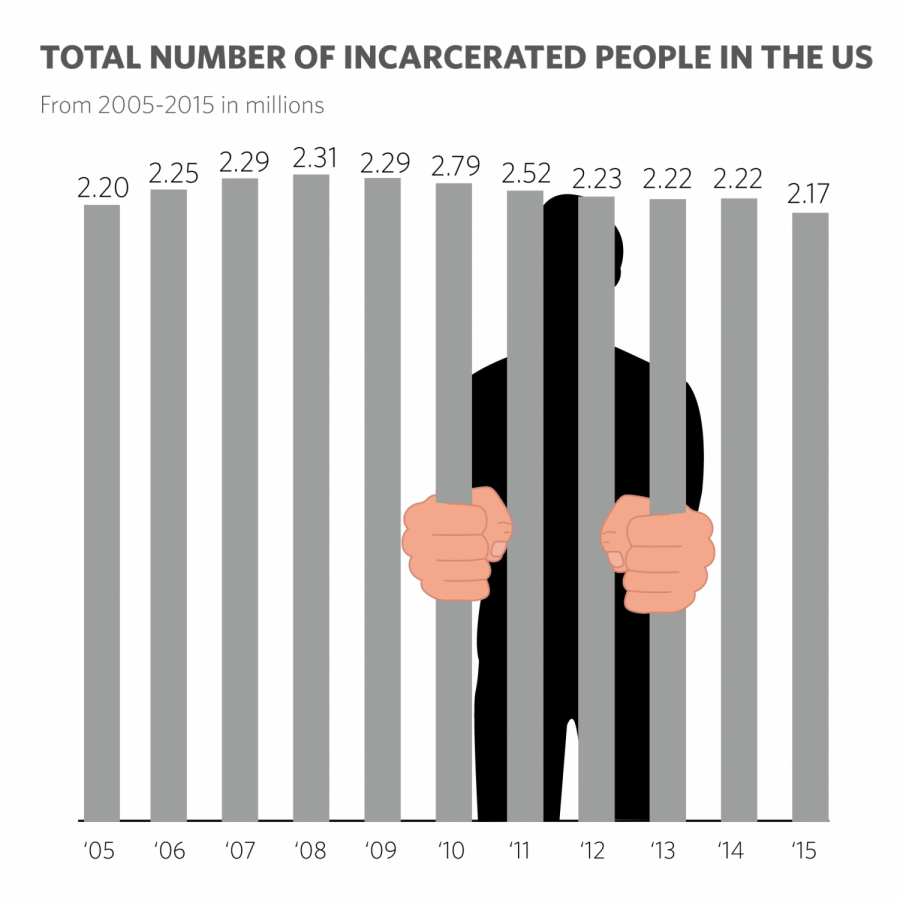Education Justice program receives $1 million grant
Source: Bureau of Justice Statistics
October 31, 2017
The Education Justice Program at the University received a $1 million grant from the Andrew W. Mellon Foundation two weeks ago.
This project gives those who are incarcerated the ability to take classes to go toward their college credit for once they are no longer in jail.
According to the Andrew W. Mellon Foundation website, the organization’s goal is to “support exemplary institutions of higher education and culture as they renew and provide access to an invaluable heritage of ambitious, path-breaking work.”
According to the Education Justice Program’s website the mission of the Education Justice Project (EJP) is “to build a model college-in-prison program that demonstrates the positive impacts of higher education upon incarcerated people, their families, the communities from which they come, the host institution, and society as a whole.”
Students who pass these courses get University credit, so when they are done they can continue taking courses at the University.
Get The Daily Illini in your inbox!
“In addition to full credit courses we offer a lot of extracurricular programs to explore different interests and talents,” said Rebecca Ginsburg, director of the program.
Some of these extracurricular programs include writing workshops, computer labs, anti-violence groups and a mindfulness group.
Ginsburg said they are also working on developing a news channel just for the Danville Correctional Center. The channel will air programs such as PBS documentaries, and it will create a way for those who are incarcerated to have a connection with the outside world.
With having the million-dollar grant, there are many different things that the money will go toward, the news program being one of them.
Ginsburg said the money will also be going toward a two-year project to evaluate EJP and its outcomes.
“It is not yet obvious how we want to evaluate our work, but we would know if we were failing if all of our students were quitting or committing suicide and suicide is a big thing in prison,” she said. “In the first year we will be looking at how higher education translates in prison and then the second year we will evaluate the evaluation process and see what we want to tweak.”
She also said that another big portion of the grant will be going towards salaries of new hires to manage the prison. Some of these new hires include course instructors and special event coordinators.
Currently, the course instructors of the EJP are volunteers, but now that the program can offer them some money, Ginsburg expects more teachers will come to teach for the program as well as the opportunity for more course offerings.







